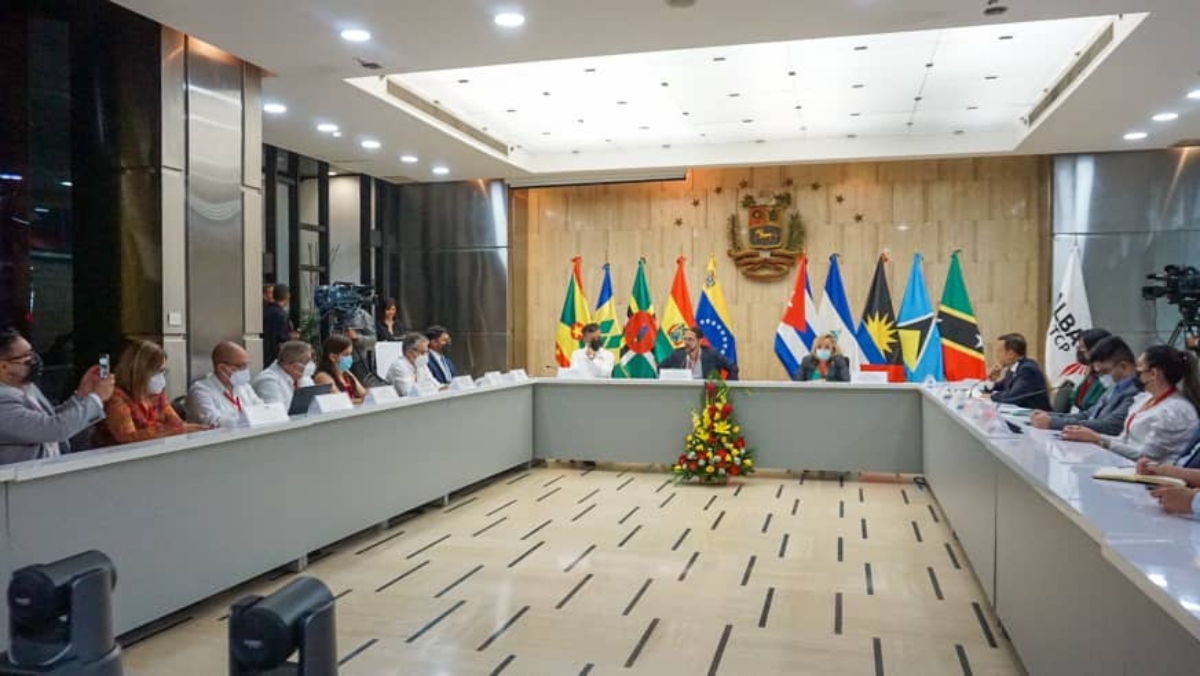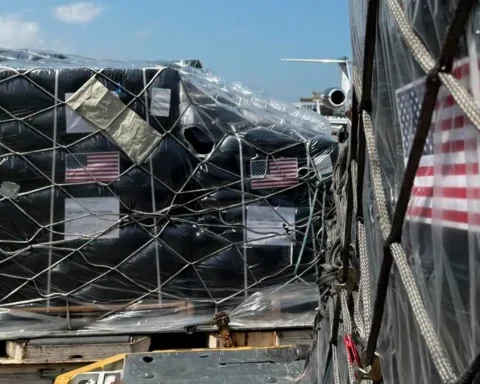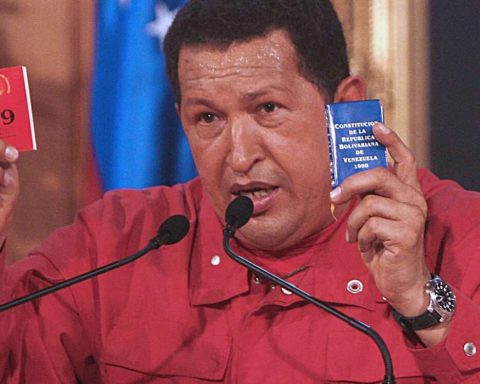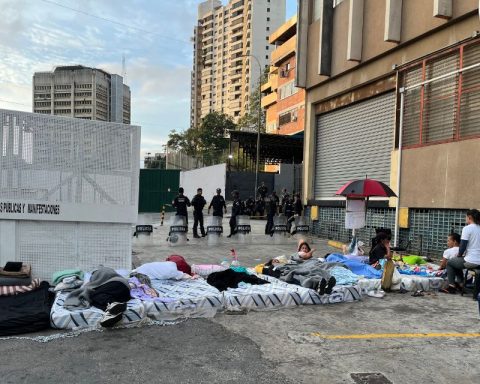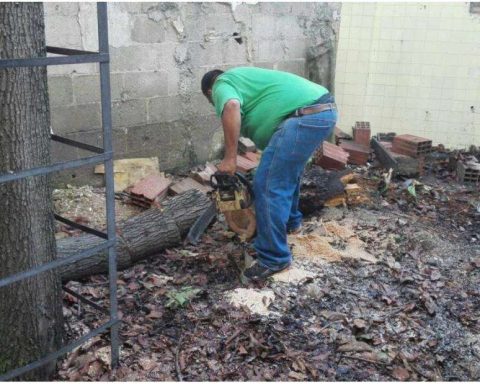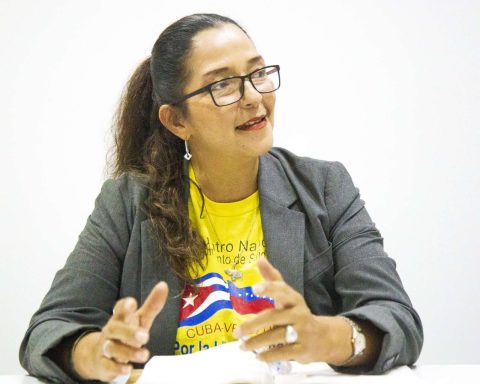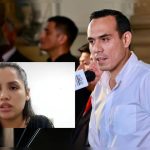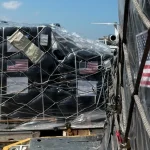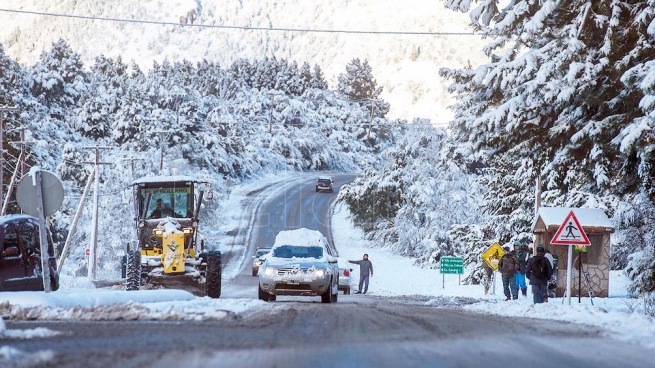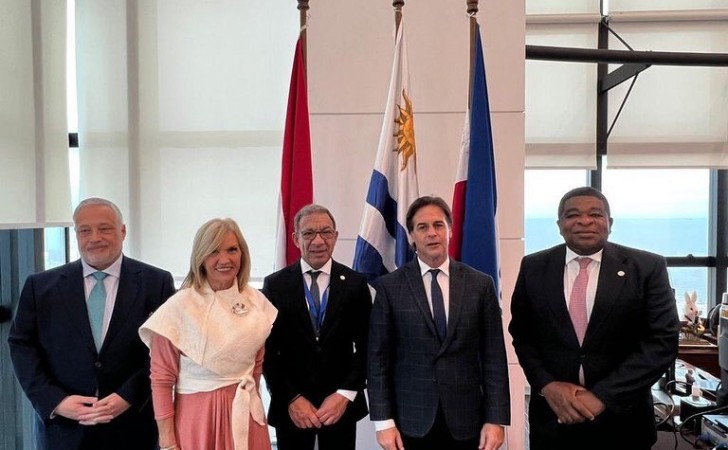Faced with a world that is torn between two antagonistic doctrines, one the Monroy, which seeks to impose hegemonic interests; and the Bolivarian, which seeks to integrate the peoples, the First Digital ALBA Meeting, organized by the Bolivarian Alliance for the Peoples of Our America-Peoples’ Trade Treaty (ALBA-TCP), is set up this Tuesday in Caracas.
“We are in a particular time, the last few weeks have been important to identify where we are. There are two projects in dispute, one the integrator, for life, which seeks unity; and the other, a disintegrator that intends to instrumentalize its geopolitical interests”, stressed the executive secretary of ALBA-TCP, Sacha Llorenti.
During the opening words of the event, Llorenti mentioned that “we are living in a very particular time; On the one hand, the ALBA Summit of Heads of State was held, and on the other, the Los Angeles Summit, where they held a summit that was neither a summit nor an American one », he said.
For the executive secretary of Alba-TCP, at this time the world is torn between two projects, “two doctrines: the Monroy and the Bolivarian, are in permanent conflict.”
In the face of this struggle, which has been going on for 200 years, Llorenti pointed out, different scenarios are now being presented in which “we have seen a series of threats to our processes”, which calls us to keep moving to achieve unity of the villages.
“We have to keep the conversations and debates going, keep moving. It is at stake to be a colony or to be independent », she stressed.
For his part, the Venezuelan writer, Luis Britto García, exposed the international scenario, in the use of energies of fossil origin of which Venezuela has the first reserve, and that should contribute to a new global model in an equitable way.
In this regard, he stressed that communication plays its role. “Venezuela has the future of the world in its hands, and there are two futures, one in which the 1% will exterminate the rest, and the other use the resources in favor of 100% of humanity,” he said.
New communication challenges
The sector vice-president of Communication, Culture and Tourism, Freddy Ñáñez, stated during his speech at the meeting that “we must articulate our particularities and strengths” as a working method to face the new challenges in digital communication.
“We must think about social networks and new communication techniques from the sovereignty of States, it is no longer about limits or borders, we have to think about space sovereignty,” he said.
Greeting from President Díaz-Canel
The Cuban president, Miguel Díaz-Canel, greeted this Tuesday the participants of the First Digital ALBA Meeting that takes place in Caracas.
“Space to exchange experiences and strengthen alliances in the face of the fierce communication war,” stressed the Cuban President through his account on the social network Twitter.
During his first words, the executive secretary of ALBA-TCP thanked the greeting sent by the Cuban president, Miguel Díaz-Canel, who is “attentive to this meeting.”
Patricia Villegas: Hegemonic media contribute to polarization
The president of the news channel Telesur, Patricia Villegas, warned about the methodology used by the hegemonic media to maintain a polarized discourse and ideology in which celebrity spokespersons and artists are used to echo the discourse that is being implemented at that time. in public opinion as part of the communicational hegemony.
In this context, Villegas exhorted communicators to empower social networks and traditional media with effective messages according to each segment of the population, to continue fighting the hegemonic battle of communication.
Miguel Pérez Pirela: Chávez intuited the impact of communication 2.0
The philosopher and communicator Miguel Pérez Pirela, in his participation in the meeting, recalled the commitment and initiatives that Commander Hugo Chávez had in communication 2.0, despite the “denialism” that many had about the impact that social networks and the media would bring. digital in the media.
“Chávez was clear about it, he had to bet on 2.0, that’s why he not only opened the @chavezcandanga account but also created the logistics to make it possible to communicate from 2.0,” he explained.
13 countries participate
This Tuesday 28 began the ALBA Digital Meeting, in which delegations from 13 countriesand aims to create strategies around communication in the face of media siege in countries of the region.
The information was released this Monday by the Deputy Minister of Communication Management, Isbemar Jimenezthrough a television program, where he indicated that the meeting will be attended by the delegations of Cuba and Bolivia, in person, and will take place in the tower of the Ministry of Foreign Affairs, located in Caracas.
Jiménez explained that the rest of the guests will connect to the event through the Zoom platform.
“The idea is to set strategies, exchange experiences on how to deal with the media siege and how to deal with hegemony and how to communicate,” he emphasized.
The forum will last until this Wednesday, June 29, and 13 delegations participate in person and by videoconference.
